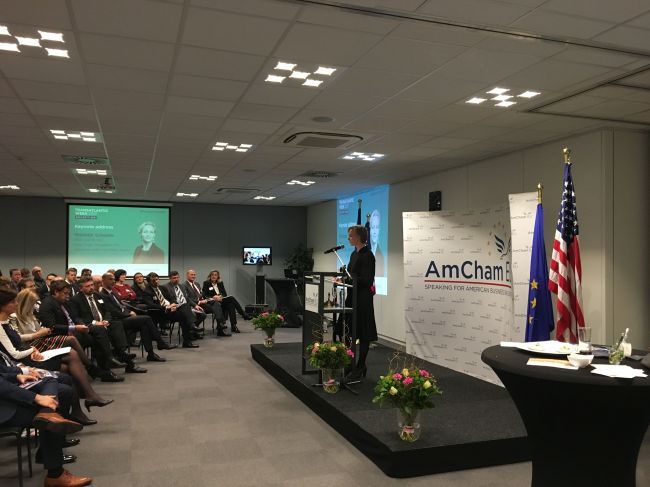The focus of the kickoff briefing within the Transatlantic Week 2017 was to highlight some of the challenges and uncertainties facing Europe. There are four disruptive forces behind turbulent times in the world, and these are technology, globalization, information and trust.
The fact is that chaos and disruption are here, so we should all forget business as usual. But the message that has been put forward was that business has a huge opportunity to bring stability in turbulent times. Companies should be prepared for disruption and have a contingency plan. It is importat to keep the single market as the cornerstone of the future integration as it can bring the whole Europe together.
EU and US remain each other's most important markets
As it was stressed during the debate, TTIP is not dead, it has just been put on hold to see what will be the US trade policy in the future. US is still strong and growing and a strong US economy is positive for global economy. And no two other regions in the world are as deeply integrated as the EU and the US, the two remain each other's most important markets. The transatlantic economy generates $5.5 trillion in total commercial sales a year and employs up to 25 million workers in ‘on shored’ jobs on both sides of the Atlantic. The transatlantic economy is the largest and wealthiest market in the world as it comprises 66 % of outward stock and 57 % of inward stock of global FDI, one third of global GDP, 27 % of global exports and 31 % of global imports.
Brexit and the future ahead of us
One of the main topics of the Transatlantic week was Brexit and the fact that the future of the EU – Britain relation will tell us a lot about the future that is coming, about the future trade arrangements and about how the future immigration will be held.
Fiona Dawson, global president of Mars Foods, one of the world’s largest food manufacturers, said that Britain’s departure from the European Union risks ushering in a new age of international division and that the failure to negotiate a successful Brexit deal will damage not just the long-term prosperity of Europe but also the wider world. British prime minister Theresa May acknowledges the importance of trade, and with Britain leaving the single market, UK will negotiate new trade agreements. Free trade between the UK and Europe means more trade and more jobs, less trade means lower growth.
